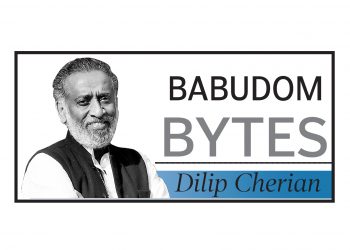I ndia’s signing of the Host Country Agreement (HCA) with the Global Biofuels Alliance (GBA) marks a significant win for the Ministry of External Affairs (MEA). This move brings the GBA’s Secretariat to India, marking an exciting milestone for the renewable energy sector. Officials from MEA and the Ministry of Petroleum & Natural Gas sealed the deal, giving the GBA a base with legal standing and immunity under Indian law. MEA is visibly thrilled to add another global institution to India’s portfolio — it’s more jobs for the boys and more toys to play with. There’s a buzz that the UN sees these new headquarters in the South as signs of a global power shift, and MEA is already celebrating this as a win for India on the world stage implying that India is now a destination for serious international players. For the GBA, it’s about advancing biofuel use worldwide by solving challenges around feedstock and supply chains, attracting investments, and creating common standards. Since its start during India’s G20 presidency in 2023, the Alliance has grown to 27 countries and 12 international organizations—a pretty solid show of global interest in biofuel solutions. Bringing the GBA Secretariat to India isn’t just a diplomatic flex; it’s opening up real opportunities on the ground. Indian biofuel experts are likely to find new job openings, and the private sector gets a platform to showcase its tech and innovations. It all sweetly ties back to the “Atma Nirbhar Bharat” vision—empowering local capabilities while contributing to global sustainability.
Babus can now give taxpayers a break
The Income Tax Department has taken a step to ease the burden on taxpayers by allowing its officials to waive or reduce interest on unpaid taxes under certain conditions. According to Section 220(2A) of the Income Tax Act, if taxpayers delay paying the amount specified in a demand notice, they incur a 1% monthly interest. Now, however, officials can provide relief based on specific guidelines. A recent circular from the Central Board of Direct Taxes (CBDT) outlines how much interest can be waived or reduced. Senior tax officers such as Principal Chief Commissioners (PRCCIT) or Chief Commissioners (CCIT) now have authority over substantial amounts. A PRCCIT can decide on interest waivers exceeding Rs 1.5 crore, while a CCIT can manage waivers for amounts between Rs 50 lakh and Rs 1.5 crore. For amounts below Rs 50 lakh, the decision falls to a Principal Commissioner or Commissioner. Great exemptions and more flexibility for officers could, of course, cut either way. Perhaps because the notions of tax compliance and the severity of tax crackdowns have allowed Finance Minister Nirmala Sitharaman to make these changes by empowering the new cadre of officers that this government has placed more reliance on. For taxpayers, this change could be a welcome sign of responsiveness, but only if officials apply it transparently. Tax experts are optimistic and hopeful that these provisions should speed up the relief process for taxpayers. The move is likely to promote transparency and efficiency, but ultimately, this reform represents a chance to support taxpayers in a meaningful way.
From controversy to chips
In a curious twist of priorities, the same week the Uttar Pradesh government introduced a controversial diktat restricting women’s freedom to visit male hair stylists and tailors, local bureaucrats have pushed forward an initiative aimed at securing a place for the state in the high-tech future. Announcing semiconductor manufacturing projects worth Rs 30,700 crore, they are trying to carve a space for Uttar Pradesh in the global tech race. Noida is set to become a key semiconductor manufacturing hub with the approval of two major projects by the Uttar Pradesh state cabinet. The first, a Rs 27,000-crore facility by Tarq Semiconductors (Hiranandani Group), will focus on producing microchips vital for devices like smartphones and cars. The second, a Rs 3,700-crore plant by Vama Sundari Investments (HCL Group), will produce driver ICs and display driver circuits. Both facilities will be located near the Noida International Airport, further supporting the region’s growing tech ecosystem. The projects align with India’s push to strengthen its semiconductor manufacturing capabilities, supported by central government incentives. The state’s initiative also includes a partnership with the US to produce chips for national security. While social conservatism seems to be gaining traction, the government’s ambitious push in the semiconductor sector signals an attempt to balance tradition with modernity, even if the latter feels at odds with the former.
Dilip Cherian







































